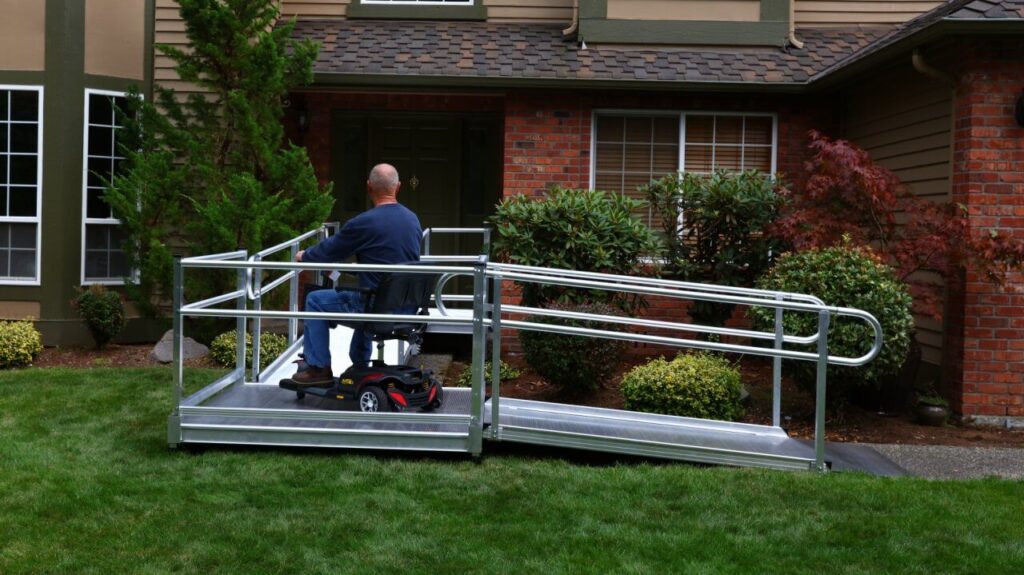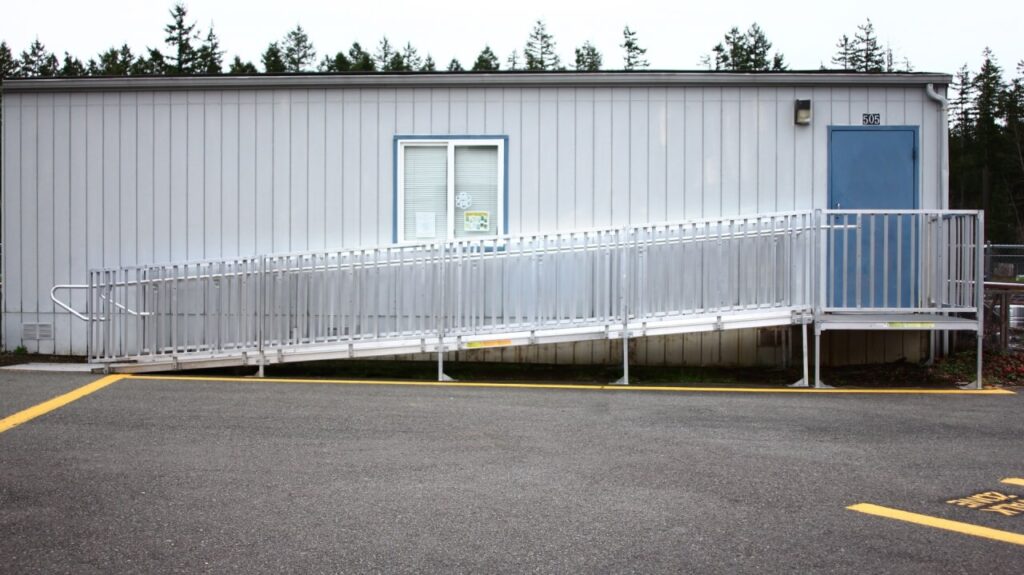Ramps
Contact us today and set up your consultation.

Freedom mobility
Custom Modular Ramps
Looking for the perfect wheelchair ramp? Custom modular aluminum ramps are the ideal solution! Designed for maximum accessibility and long-term durability, these ramps offer unmatched convenience, safety, and flexibility. Whether you need a short-term option or a permanent installation, modular aluminum ramps deliver life-changing benefits that adapt to your unique needs and environment.

Accessibility: A wheelchair ramp provides a barrier-free access to the home, enabling individuals with mobility challenges to enter and exit easily.
Independence: It promotes independence by allowing wheelchair users to move in and out of their homes without assistance from others.
Improved Social Life: Easy access empowers individuals with limited mobility to engage more actively in social activities and maintain a better quality of life.
Temporary Assistance: It can serve as a helpful feature for people recovering from injuries or surgeries that temporarily affect their mobility.
Inclusivity: It ensures that visitors and family members with mobility limitations can participate in gatherings and events at the home.
Aging in Place: A ramp enables aging homeowners to stay in their homes longer, as it accommodates changing mobility needs.
The Perfect Solution to Access Your Home
Modular Ramps
Modular aluminum wheelchair ramps offer a range of compelling benefits, making them a versatile solution for enhancing accessibility. Their modular design allows for easy customization and adaptability to various spaces and configurations, ensuring seamless integration with different environments. The lightweight nature of aluminum ensures effortless installation and maneuverability, while also guaranteeing durability and resistance to harsh weather conditions. These ramps are cost-effective and can be quickly assembled, disassembled, and reconfigured as needed, making them a practical choice for both temporary and permanent accessibility needs. Additionally, their low maintenance requirements and recyclability further contribute to their eco-friendliness and long-term value. Overall, modular aluminum wheelchair ramps provide a safe, convenient, and inclusive means for individuals with mobility challenges to navigate spaces comfortably.



Freedom Mobility
Frequently Asked Questions
Why should I consider installing an ADA ramp at home?
Installing an ADA ramp at home offers several benefits. It ensures accessibility and safety for individuals with mobility challenges, such as wheelchair users, seniors, and those with limited mobility. It allows them to navigate their home independently, improving their overall quality of life. Additionally, an ADA ramp increases the property’s value and appeal, making it more attractive to potential buyers or tenants in the future.
How do I know if my home requires an ADA ramp?
If you or a family member have difficulty accessing your home due to mobility limitations, an ADA ramp may be necessary. Additionally, if your local building codes or regulations mandate accessibility modifications for residential properties, an ADA ramp might be required to comply with these laws. It is always best to consult with an accessibility expert to assess your specific needs and determine if an ADA ramp is appropriate for your home.
Can I install an ADA ramp myself, or should I hire a professional for the job?
While some individuals with construction experience may attempt to install an ADA ramp themselves, it is generally recommended to hire a professional contractor with experience in building accessible ramps. ADA ramp installation requires adherence to specific guidelines and regulations to ensure proper incline, width, and safety features. Professional contractors will have the necessary knowledge and expertise to construct a ramp that complies with ADA standards and local building codes, ensuring the safety and accessibility of the ramp for its users.
How much does it typically cost to install an ADA ramp at home?
The cost of installing an ADA ramp at home can vary depending on several factors, including the length and complexity of the ramp, materials used, local labor rates, and any additional features required for accessibility. On average, a basic ADA-compliant ramp installation can range from $1,500 to $5,000. More extensive or customized ramps can cost upwards of $10,000.




